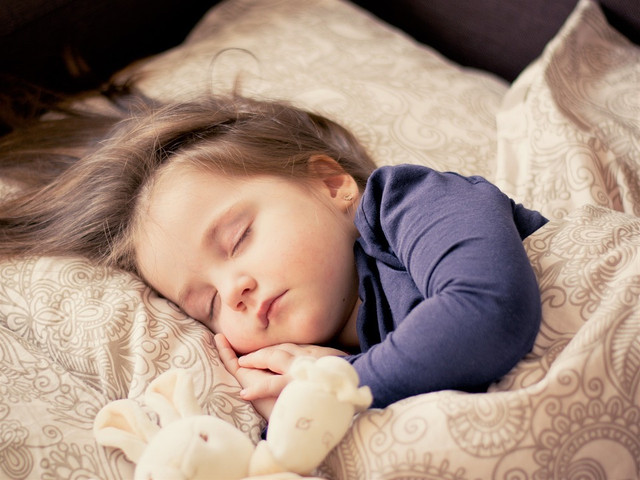
Everyone has trouble falling asleep. With a few simple tips for falling asleep you can manage to calm down faster – we show you different methods.
1. Tip for falling asleep: the right evening meal
Above all, what is probably the most important tip for falling asleep: According to experts, you should not eat four hours before bedtime. Because if your stomach is still working, you have less of a chance of falling asleep. In addition, your dinner should be rather light and not too rich.
It is also important to use stimulating drinks sparingly. Therefore, do not drink coffee or black tea in the evening – fruit or herbal teas are a good alternative. Lemon balm tea is a good example.
Avoid alcohol and nicotine in the evening if possible. Although they usually let you fall asleep faster, the sleep is less restful.
2. Sleep Inducing Drinks: Moon Milk
Certain teas and drinks are said to have a sleep-inducing effect. How moon milk or hot milk with honey affect sleep has not been scientifically proven. However, a ritual involving a warming drink might help you fall asleep.
Here are more calming teas that might help you with trouble falling asleep:
3. Fall asleep faster thanks to fresh air

(Photo: CC0 / Pixabay / cocoparisienne)
Another tip for falling asleep is to go for a short walk before going to bed. However, you should avoid strenuous sport, as this tends to stimulate your circulation and you will need even longer to calm down.
Air your bedroom before you go to bed for about five to ten minutes, a little longer in summer and a little less in winter. This is how you ensure a healthy sleeping climate and the right temperature in the bedroom. This is optimally between 15 and 19 degrees.
There are also plants that are suitable for the bedroom because they improve the air quality.
4. Fall asleep relaxed: meditation and body scan
If you find it difficult to calm down and fall asleep relaxed, you can try various relaxation techniques. A sleep meditation can help you fall asleep and improve the quality of your sleep.
If you often find yourself in a merry-go-round of thoughts before you fall asleep, a body scan could help you. You concentrate on individual body regions and can let go of disturbing thoughts and come to rest.
5. Sleep Aid: No blue light before bed
Most people fall asleep best when it is dark. So turn off unnecessary light sources when you go to bed. In the hours before you go to bed, you should use warm lights, since cold lights make you too awake.
And even if it’s difficult, digital detox can help you fall asleep. In the evening you should avoid computers, televisions and smartphones if possible. The blue light from the screens dampens the formation of the sleep hormone melatonin.
6. Tip for falling asleep: Writing down thoughts can help

(Photo: CCO Public Domain / Pixabay / dagon_)
When you’re stressed and you have hundreds of thoughts running through your head, you’ll have a hard time falling asleep. If you really want to sleep but still have a lot of things to do, you can write them down on a to-do list. What you have written from your soul, you can edit the next day.
You should also stop doing anything that is too mentally demanding just before you go to bed. Instead, relax by listening to calm music, reading a book, or meditating. However, you shouldn’t overdo it with the music before going to bed either: Researchers found that certain music when falling asleep can lead to nocturnal catchy tunes in the brain and thus to sleep problems.
You should also avoid sources of noise: Even if you are not woken up by noises at night – you still perceive them subconsciously. For example, you can use earplugs if you live on a noisy street.
Tip: Keep a sleep diary
If nothing helps and you have persistent problems falling asleep, you can keep a sleep diary to get to the bottom of the causes of your problems falling asleep. Write down what you did in the two hours before bed, what’s on your mind right now, how well you fell asleep, and how you felt the next morning. Such a diary can also be a useful tool if you should seek medical advice about your problems falling asleep.
Read more on Techzle.com:
- Lack of sleep: Symptoms and consequences of not getting enough sleep
-
Morning routine: 10 tips for a relaxed start to the day
- Organic bed linen: The most beautiful sustainable bed linen sets
German version available: Ways to Fall Asleep: Tips and Tricks